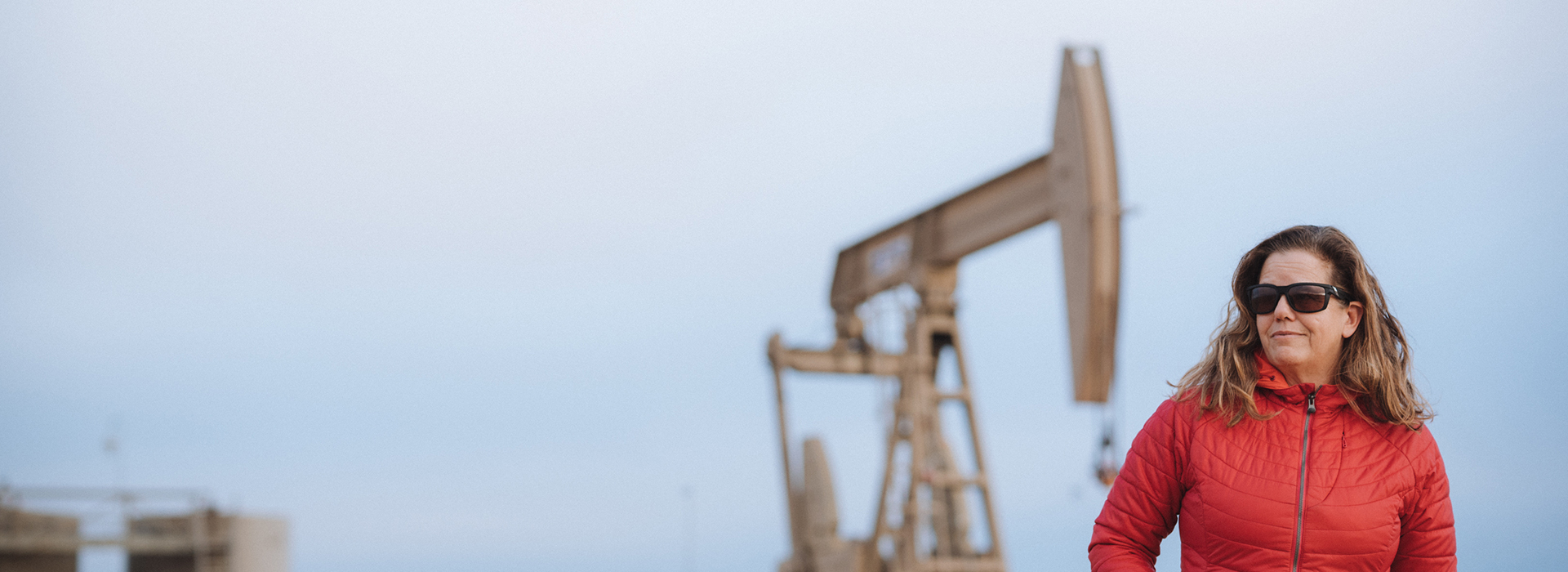Can the Outdoor Industry Save the World?
By Ashley Korenblat

Our industry is working hard on many causes: saving natural places, improving supply-chain sustainability, and getting people outside. Our voices are amplified by the popularity of our brands and the coolness of our lifestyles. We are moving the needle on a variety of fronts, but there is a key category that could significantly leverage our efforts on climate—one we haven’t fully engaged—energy policy.
We in the outdoor industry have an opportunity to improve the way we produce energy, because quality of life has become an economic driver. Quality of life used to mean access to cheap electricity and good schools, but today it means clean air and water and access to the outdoors. Businesses are looking for places to locate that have high quality of life, and communities with access to public lands are poised to deliver it.
In the past, public land communities were dependent on resource extraction— oil and gas and coal—but today more rural places are seeking to pivot away from carbon-related pursuits. These cities and towns have many obstacles to overcome, some of which are related to outdated energy policies. The outdoor community is uniquely positioned to change this.
To start, consider the law that governs how we drill for oil and gas on public lands—The Mineral Leasing Act of 1920. Yep, 1920. The oil and gas leasing system was created at a time when we knew very little about where oil actually was. The leasing system was designed to spread out risk and encourage development.
The Mineral Leasing Act met certain needs in 1920, but in 2020, things have changed. Outdoor recreation is bringing wide-ranging economic drivers to rural places across the country. Not only do classic hikes and beautiful vistas attract visitors, but recreation opportunities like OHV routes, climbing areas, whitewater rivers, and mountain bike trails are attracting businesses to places where their employees can afford housing.Yet failure to update the 1920 Act will lead to more leasing, which is discouraging recreation investment.
This is where we have an opportunity to make a difference. If the outdoor industry works to update oil and gas leasing on public lands, we can accelerate changes in energy production by helping communities transition more quickly to sustainable economic drivers like recreation.
Of course, renewable energy plays a big role, but the fewer communities that depend on carbon-producing energy methods for their livelihoods, the better. The Trump administration has a policy called “Energy Dominance” that is aggressively leasing every nook and cranny of our public lands, even though only about 50% of the lands already leased have yet to be developed.
Saving millions of acres from unnecessary leasing will accelerate the transition for many communities.
Traditionally, we in the outdoor world have relied on place-based conservation. We’ve been involved in successful campaigns to save specific places around the world. Yet, we are often not nimble enough to support wonky bills or policies. Government does not always function in a linear fashion and thus our well-planned cause-related campaigns can sometimes miss opportunities to make important progress.
In January, Senator Cortez Masto (D-NV) introduced a new bill that will end speculative leasing on Bureau of Land Management lands. The bill will help free up the BLM to partner with nearby communities ready to invest in the recreation economy. This bill will help move communities away from the carbon economy and toward outdoor recreation, and the outdoor industry should support it.
Changing the way we manage oil and gas is one way that your company could get involved in energy policies that affect both progress on climate and the quality of the places where we play. Policy work often requires little funding and only a few moments of your time. You don’t need to be an expert to help. With the right nonprofit partner and a one-pager of talking points—a quick phone call from an outdoor executive to the right staffer in DC could make an impact. To learn more and get involved, go to publiclandsolutions.org/energy.
Ashley Korenblat is the CEO of Western Spirit Cycling and a founder of Outerbike and Public Land Solutions—a nonprofit working with communities in transition and the government policies affecting outdoor recreation.